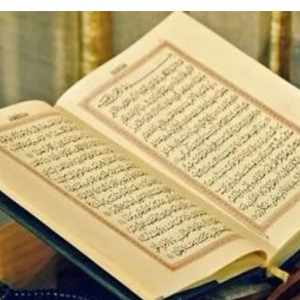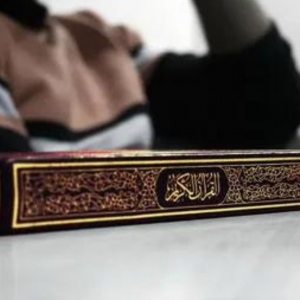Certainly, online quran classes can provide you with information about the lives of Hazrat Adam and Hazrat Hawa (Eve) based on Islamic teachings.
Hazrat Adam (Adam, Peace Be Upon Him):
Hazrat Adam is considered the first human being and the first prophet in Islamic tradition. He was created by Allah from clay and was given the breath of life, making him a unique and honored creation. Allah appointed him as His representative on Earth and instructed the angels to bow down to him. This event marked the superiority of humanity over the angels, as humans were given free will and the ability to make choices. Online quran classes tell about the story of Hazrat Mosa.
Adam was granted a special place in Paradise along with Hazrat Hawa, and they were allowed to enjoy its blessings except for one tree. However, they were tempted by Satan (Iblis) and ate from the forbidden tree, leading to their expulsion from Paradise. Adam and Hawa were sent to Earth to live as mortals and were forgiven by Allah after seeking His forgiveness.
Adam is also known for his role as the father of humanity. He had many children, and from them, different nations and tribes emerged. He is considered the first prophet, receiving guidance from Allah and passing it on to his descendants.
Hazrat Hawa (Eve, Peace Be Upon Her):
Hazrat Hawa, or Eve, is mentioned in Islamic tradition as the first woman and the wife of Hazrat Adam. She was created from one of Adam's ribs by Allah's command. Together with Adam, she lived in Paradise until they were both tempted by Satan to eat from the forbidden tree.
Hawa is not solely responsible for the disobedience; both she and Adam made the choice to eat from the forbidden tree. Also, after their expulsion from Paradise, they faced the challenges of life on Earth, including raising their children and working the land for sustenance.
Islamic teachings emphasize that both Adam and Hawa repented for their mistake and sought Allah's forgiveness. As well, they were forgiven and provided with guidance to live a righteous life and fulfill their responsibilities as caretakers of Earth.
Both Hazrat Adam and Hazrat Hawa hold significant roles in Islamic teachings, symbolizing the origin of humanity, the concept of free will, and the importance of seeking forgiveness and guidance from Allah. Their story carries moral lessons about the consequences of disobedience, the value of repentance, and the enduring relationship between humans and their Creator.
Online Quran Classes | The story of Hazrat Adam in Jannah
Certainly, online classes on the story of Hazrat Adam (Adam, Peace Be Upon Him) in Jannah (Paradise) are a significant part of Islamic teachings. online quran classes for kids are a summarized version of the story:
According to Islamic tradition, Allah created Hazrat Adam as the first human being and placed him in Jannah, a paradise of bliss and harmony. Additionally, Adam was given a special position as the representative of Allah on Earth and was granted knowledge and authority over the creatures. Allah taught Adam the names of everything and allowed him to live in Jannah along with Hazrat Hawa (Eve), his wife.
In Jannah, Adam and Hawa lived in a state of pure happiness and contentment. As well, they enjoyed the bounties of paradise, including lush gardens, flowing rivers, and abundant fruits. They were not subject to any hardships, pain, or suffering.
Adam and Hawa were allowed to eat from all the trees in Jannah except for one tree. Allah forbade them from eating the fruit of this particular tree. As well, this was a test of their obedience and their ability to follow Allah's command.
However, Satan (Iblis), who was expelled from Allah's grace due to his disobedience, approached Adam and Hawa and tried to deceive them. He whispered to them, questioning the wisdom of Allah's command and suggesting that if they ate from the forbidden tree, they would become like angels or live forever.
Unfortunately, Adam and Hawa succumbed to Satan's deception and ate from the forbidden tree. As a result of their disobedience, they realized their nakedness and felt ashamed. Allah then called them to account for their actions. Both Adam and Hawa admitted their mistake and repented, seeking Allah's forgiveness.
Allah forgave them, but they were told that they would have to leave paradise and go down to Earth as mortal beings. Moreover, they were sent to Earth as a test of their faith and as a means of experiencing the consequences of their actions. The story of Adam and Hawa's expulsion from Jannah serves as a lesson about the importance of obeying Allah's commands, the consequences of disobedience, the role of repentance, and the concept of accountability. Learn quran online tells the information of Hazrat Mosa's life story.
The story of Hazrat Adam in Jannah underscores the themes of Allah's mercy, human free will, the consequences of temptation, and the ultimate potential for redemption through sincere repentance.
Conclusion
In conclusion, the story of Hazrat Adam and Hazrat Hawa holds a significant place in Islamic teachings, symbolizing the origin of humanity, the essence of free will, the consequences of disobedience, and the importance of seeking forgiveness and guidance from Allah. Placed in the paradise of Jannah, Hazrat Adam and Hazrat Hawa enjoyed a life of pure bliss and harmony, surrounded by bounties and blessings.
However, their test of obedience came when Allah forbade them from eating the fruit of a specific tree. Tempted by Satan's deception, they ate from the forbidden tree, leading to their expulsion from Jannah. This event emphasized the consequences of disobedience, the value of accountability, and the necessity of repentance.
Their sincere repentance led to Allah's forgiveness, demonstrating His mercy and compassion toward His creation. Adam and Hawa were sent to Earth as mortals, where they faced the challenges of life while carrying the lessons learned from their experience in Jannah.
The story of Hazrat Adam and Hazrat Hawa serves as a reminder of the complexities of human nature, the temptations we face, and the ultimate potential for redemption through repentance. It highlights the need for humans to make choices wisely, seek forgiveness when mistakes are made, and strive to lead a righteous life in accordance with Allah's guidance.




